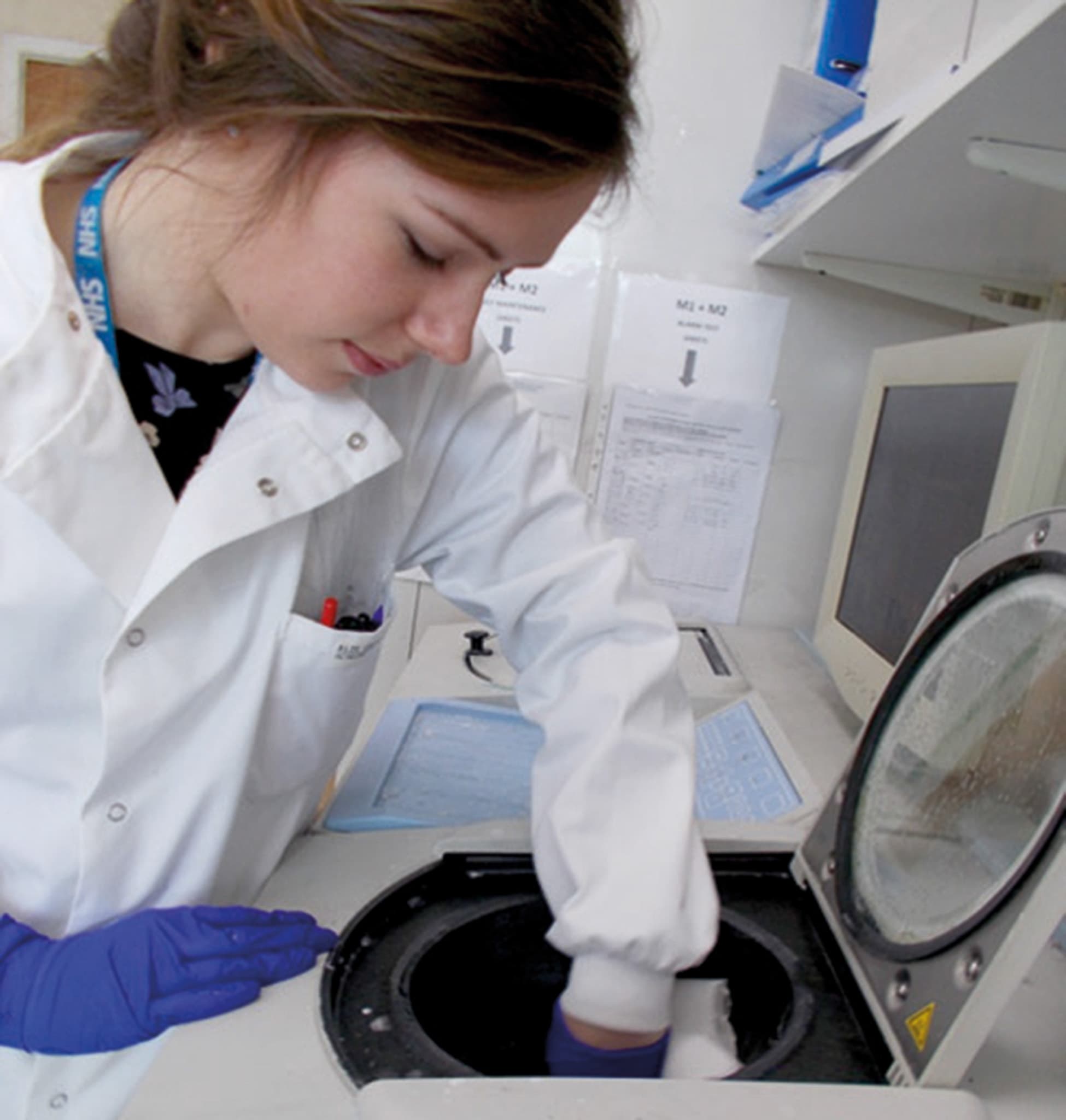Choosing a degree in biomedical science opens the door to a fascinating world of medical advancements, research, and innovation.
With diverse career opportunities in labs, hospitals, and biotech companies, this IBMS-accredited degree offers you a chance to make a real impact on human health and scientific discovery.
The science of saving lives
Biomedical science is the laboratory science that underpins disease diagnosis and management, focussing on how cells, organs and systems function in the body.
Our four-year Biomedical Science degree with an integrated master’s (MSci) provides rigorous research-led teaching in the theory and practical techniques associated with biomedical science. It is ideal for students with a broad interest in human life processes and disease, as the course places an emphasis on developing a detailed understanding of the molecules and mechanisms fundamental to life processes and how they are disrupted by disease.
This course is highly specialised and focuses on the key aspects of modern-day biomedicine as well as embedding the clinical specialisms of medical microbiology, clinical biochemistry, cellular pathology, haematology and transfusion science, clinical immunology and clinical genetics that are core to the work of pathology laboratories.
It is accredited by the Institute of Biomedical Science (IBMS). Students who graduate from this IBMS-accredited degree programme, train in an NHS lab and complete an IBMS registration training portfolio can register as a Biomedical Scientist and work in NHS pathology labs.
Biomedical Scientists play an essential role in disease diagnosis and monitoring the effectiveness of medical interventions and healthcare treatments.
You will be taught by our research-active academics and practising Biomedical Scientists from local hospitals, meaning you will graduate with an excellent understanding of the subject and a strong insight into life as a Biomedical Scientist.
By studying for an integrated master’s degree (MSci), you will graduate with advanced research skills and a more mature outlook, giving you the edge in a competitive job market, both within the field of biomedicine and beyond.
And, by undertaking our research-led degree you will gain practical skills and competence in experimental design; numerical skills such as statistical analysis, data recording and presentation; and interpersonal skills such as team working, communication and negotiation. These skills are highly valued by employers and are transferable to other careers both within the sciences, and broader fields such as marketing, finance and management.
IBMS accreditation and Health and Care Professions Council registration
Our IBMS-accredited degree course has been designed to support you to meet the Health and Care Professions Council (HCPC) educational standards required to register as a Biomedical Scientist in a UK healthcare laboratory.
Core to this is completion of a training portfolio. As a graduate of our MSci Biomedical Science programme, you are eligible to apply for a post as a trainee Biomedical Scientist in an NHS pathology lab and complete an IBMS training portfolio. Completing this training portfolio will allow you to register with the Health Care Professions Council (HCPC) as a Biomedical Scientist and allows you to work within the NHS as a Biomedical Scientist.
Your journey through biomedical science
The curriculum of our Biomedical Science MSci is highly-structured during the first three years of study in order to meet IBMS accreditation.
- You will begin, in Year 1, by studying fundamental themes that will provide you with a firm foundation for the rest of your course; topics covered include biomedical science practice, molecules of life, infection, immunity, anatomy and physiology.
- In Year 2, you will progress on to studying the topics that are core to the discipline of biomedical science, including blood sciences, clinical biochemistry, medical microbiology and cellular pathology, as well as genetics, immunology and cell biology.
- Year 3 will see you focus in greater depth on specific aspects of human disease through themes spanning clinical immunology, cancer, medical genetics, pathobiology and also explore global health challenges. In Year 3, you will also carry out your own independent research project. This is your opportunity to make a unique contribution to increasing scientific knowledge in an area of biomedical science that fascinates you.
- In Year 4 you will gain additional practical skills by undertaking another more extended research project. You will also study a variety of master’s level themes, tailoring your choices to the interests you have developed during the first three years of study.
You will be supported throughout by our academics, whose vast biomedical research experience includes skin, colorectal, breast and prostate cancers; Alzheimer's disease; schizophrenia, chronic human conditions such as respiratory disorders, and infectious human diseases caused by viruses, bacteria and parasites.
This additional experience will be invaluable in a future career, particularly if you go on to a research-based role in the biomedical, research, pharmaceutical or biotechnology industries, or further study.
A hands-on degree
Our state-of-the-art life science teaching laboratories will be at the heart of your degree. They are where you will put the knowledge you have acquired from lectures and workshops into practice and get to know your course-mates and academics.
You will gain hands-on experience (depending upon your specialisation) of using equipment and facilities such as:
- our bioimaging facility
- histology suite
- cell sorters
- confocal microscopes
- flow cytometers
- PCR thermocyclers
- cell culture facilities
In addition to laboratory practical classes and workshops, you will learn through lectures, workshops, laboratory reports, essays and case studies, presentations, tests and exams. You will also benefit from digital resources through our online learning environment, which will support your independent learning.
Altogether, your classroom learning and practical experience means you will graduate well-prepared for a successful career as a Biomedical Scientist or in other scientific and non-scientific fields.











